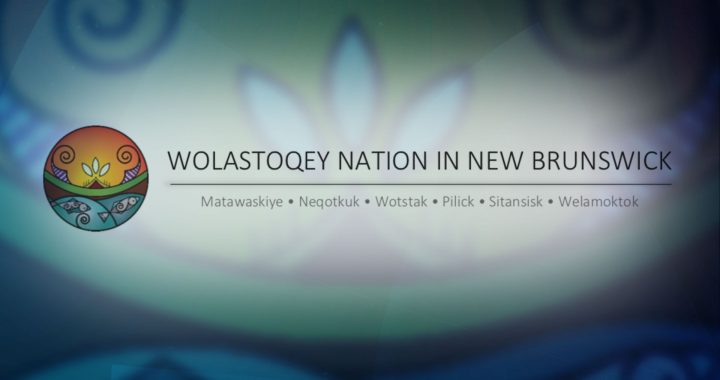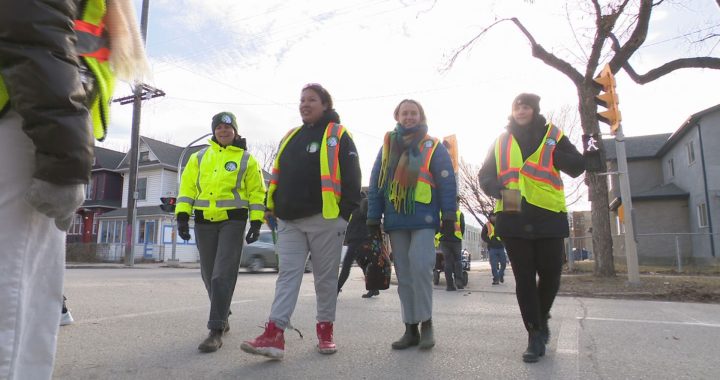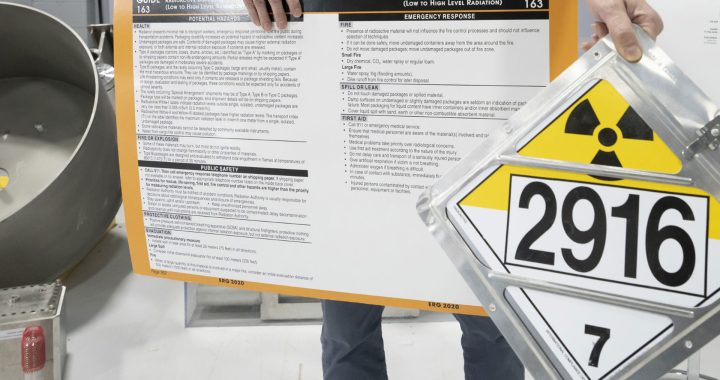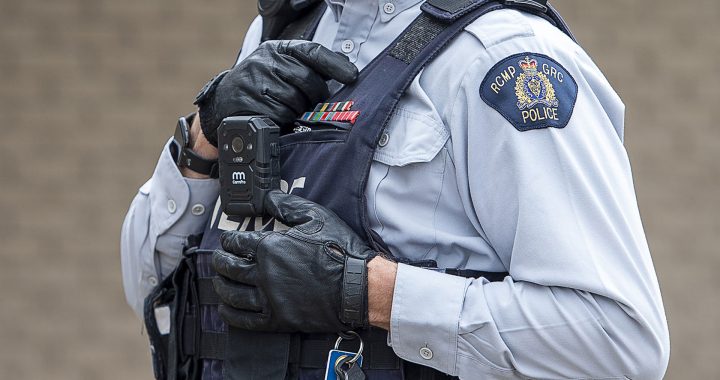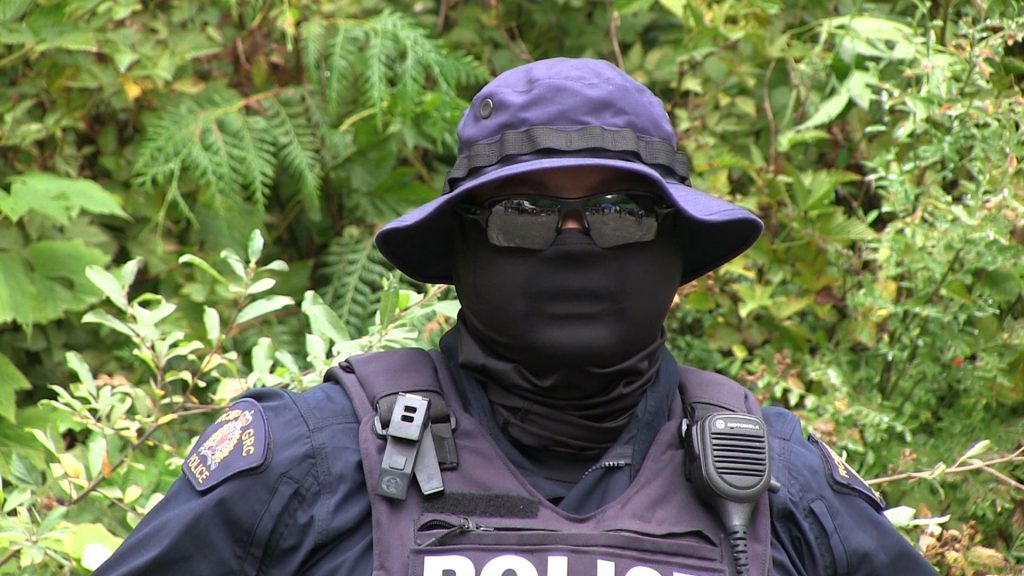
A Mountie deployed to enforce an injunction obtained by timber firm Teal-Jones at Fairy Creek in 2021. Photo: submitted/file
A group of activist and civil liberties organizations has submitted a complaint to the RCMP’s federal watchdog agency alleging human rights violations and systemic criminality by the force’s Community-Industry Response Group (C-IRG).
The 14-page complaint released Thursday accuses the squad of using illegal exclusion zones, wrongful arrests, arbitrary detention, intimidation tactics and “gratuitous aggression” during a May 17 raid on a logging blockade near Argenta, B.C.
The complainants urge the Civilian Review and Complaints Commission (CRCC) to open an official public interest investigation into the squad, citing repeated allegations of brutality and overreach.
“C-IRG has recently come under criticism for what are alleged to be harassment and widespread systemic abuses of process during enforcement of injunctions at Fairy Creek and on Wet’suwet’en territory,” the complaint reads.
“We trust the Commission will appreciate the significant public interest in the matter given what appears to be repeated unlawful extra juridical operations by the C-IRG unit.”
Argenta, in the province’s southeast corner, is the fourth area where the outfit faces some sort of formal misconduct allegation.
The group consists of Last Stand West Kootenay, the Autonomous Sinixt, the British Columbia Civil Liberties Association (BCCLA), the Wilderness Committee, Lawyers’ Rights Watch Canada, Mount Willet Wilderness Forever, From the Heart Kootenays, and Fridays for Future Nelson.
They banded together and lodged the complaint with CRCC Chairperson Michelaine Lahaie, whose office did not immediately return a request for comment.
The complaint was copied to RCMP Commissioner Brenda Lucki, whose office also did not immediately respond.
In a press release, BCCLA policy director Meghan McDermott said the group is “deeply disturbed by the unit’s oppressive actions,” which allegedly violated several constitutionally protected rights.
“Effective oversight of the RCMP and its Community Industry Response Group is desperately needed to safeguard our rights to freedoms of expression, association, and assembly to engage in protest and dissent,” she said.
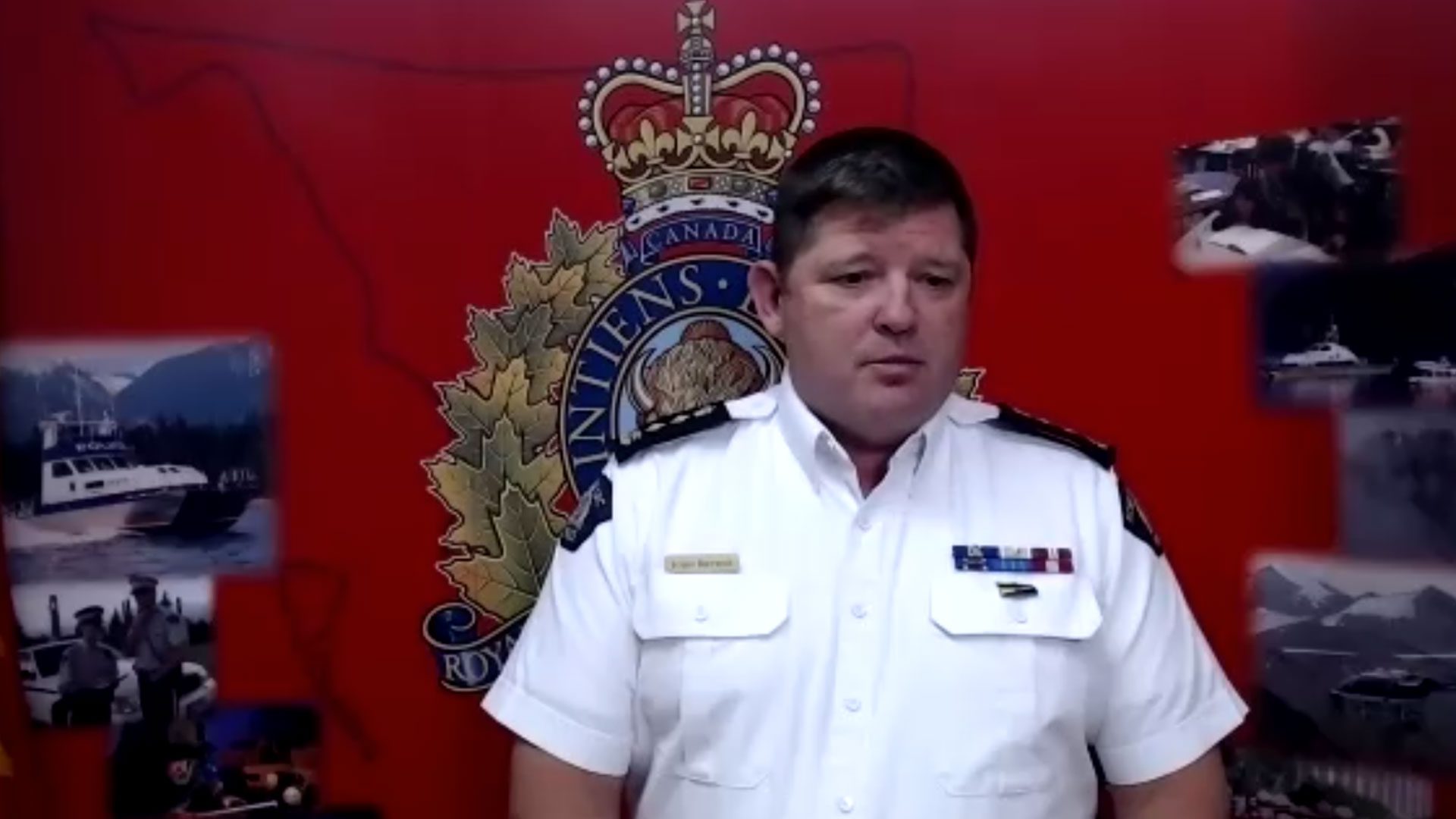
The complaint offers written testimony from 20 witnesses and arrestees. Their legal counsel Noah Ross also seperately represents more than 100 people arrested during logging blockades at Fairy Creek.
The Fairy Creek arrestees motioned to have their charges withdrawn based on similar allegations police misconduct was so outrageous the court must toss out their cases to insulate itself from reputational damage.
Explained Ross in the press release: “We have filed this complaint to hold the C-IRG Unit of the RCMP accountable for their conduct at Argenta on May 17. The C-IRG appears to have made a series of unlawful arrests and implemented an overbroad exclusion zone, resulting in substantial breaches of constitutional rights, including freedom of expression and freedom against arbitrary arrest and detention.”
According to the complaint, Mounties arrived in force to dismantle a logging blockade known as “Grouse Camp,” which the non-Indigenous activist group Last Stand West Kootenay, backed by the Autonomous Sinixt — a local nation previously declared extinct, but which recently won recognition in the Supreme Court of Canada — established in April.
The C-IRG was founded in 2017 to deal with resistance to major resource extraction projects — namely, pipelines. Recently, it started clearing the way for the timber industry too.
A month ago, an APTN News investigation into the C-IRG’s tactics, founding, operational history and command structure uncovered a string of misconduct allegations facing the unit in every one of its major operational theatres.
APTN obtained more than 4,000 pages of court files and releases from more than two dozen federal and provincial freedom of information requests and interviewed lawyers, activists, experts and the unit’s commanding officer.
C-IRG commander, Chief Supt. John Brewer, said he denies any wrongdoing by his outfit.
Read more:
Behind the Thin Blue Line: Meet a secretive arm of the RCMP in B.C.
Worrying’ and ‘extremely concerning’ C-IRG methods prompt calls for better RCMP oversight, reform
C-IRG top Mountie responds to critics, denies allegations facing squad
During the course of the investigation, the CRCC provided APTN with statistics showing the watchdog received nearly 500 complaints about police conduct from areas where the C-IRG was in charge of operations.
Only 124 qualified for further investigation, the CRCC said, and only 18 had been investigated. Discipline was meted out in just five of those cases.
The outfit can now add this policy complaint to its growing list of legal and administrative troubles.
Prominent activist Kanahus Manuel, of the Tiny House Warriors, is suing a Mountie who she alleges broke her wrist while applying a wrist-lock technique during an arrest.
The United Nations recently expressed concern about the C-IRG’s tactics after receiving allegations the squad engaged in brutality, collusion with private security firms, and excessive surveillance against the warriors.
Three members of the Wet’suwet’en Nation are also suing, accusing the B.C. government and C-IRG of perpetrating an “organized campaign of intimidation and harassment” designed to scare Indigenous people off their own territory.
These allegations have not been tested in court.
But a judge did rule the squad’s use of exclusion zones was illegal, while its practice of blocking reporters from witnessing arrests and conducting arbitrary personal belongings searches constituted an unjustifiable infringement of civil liberties.
This ruling was not appealed.




